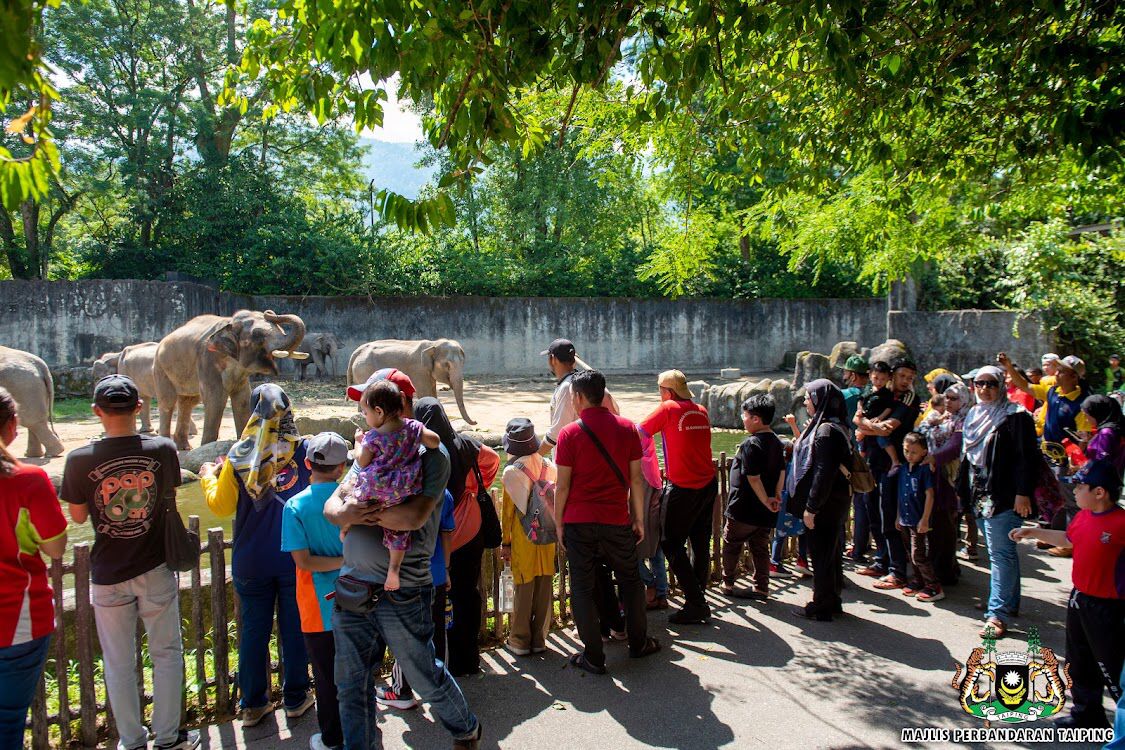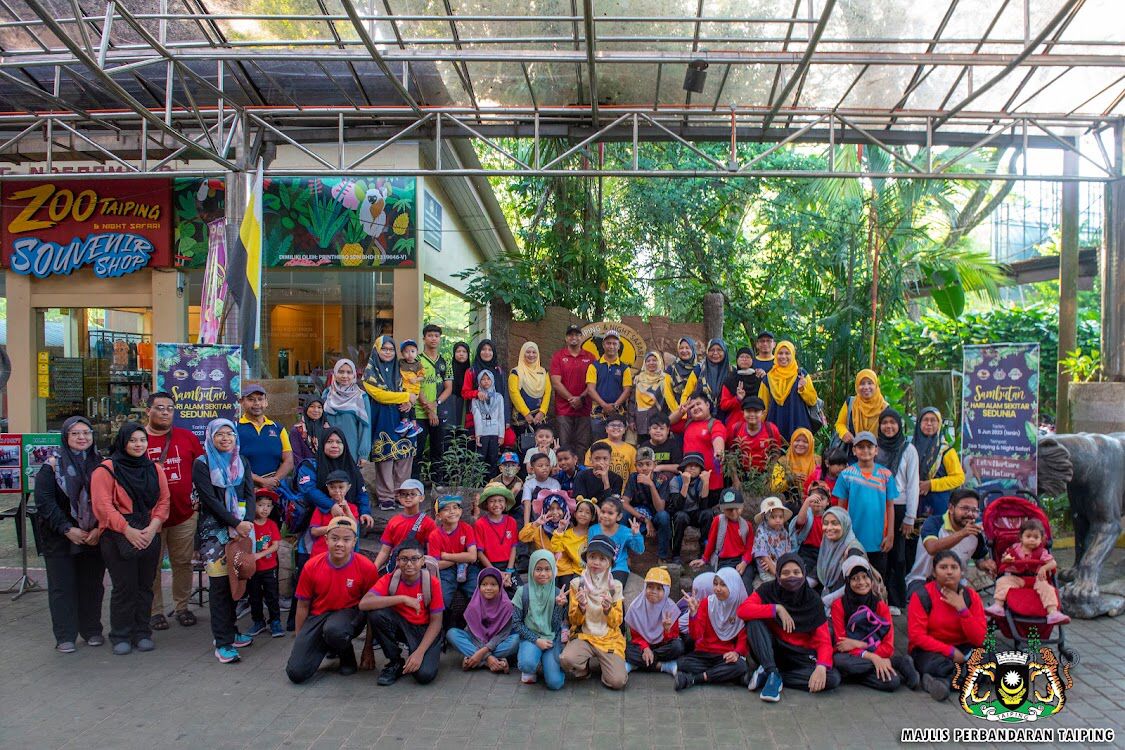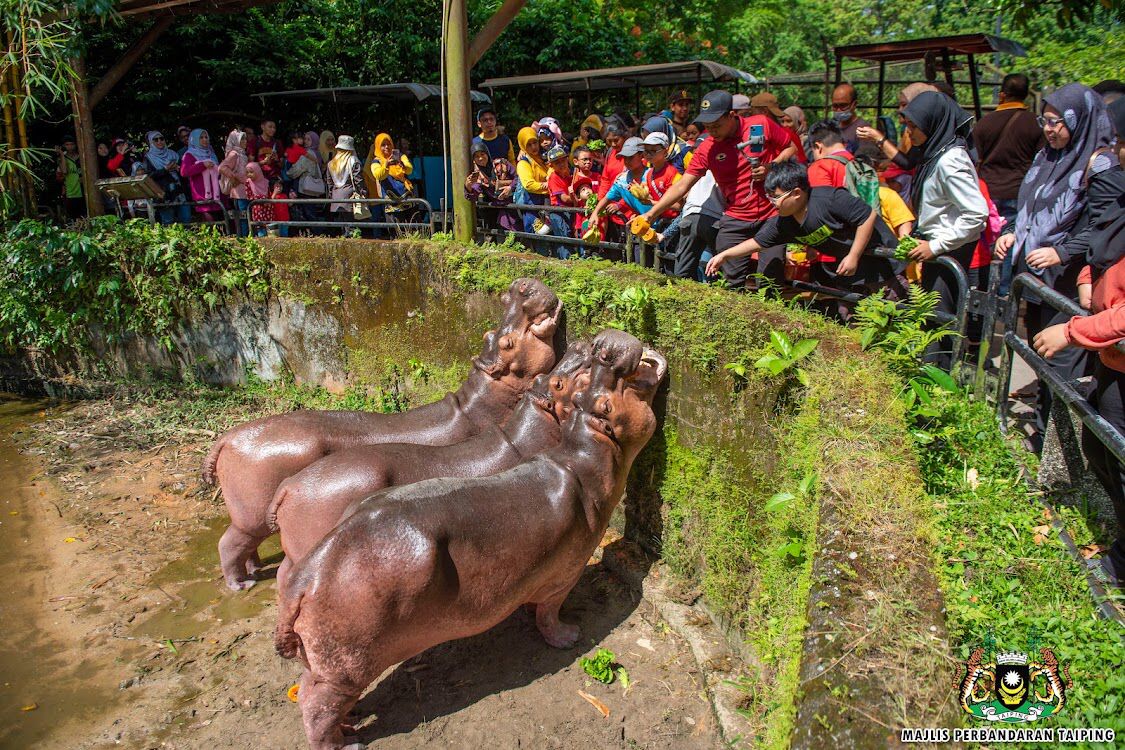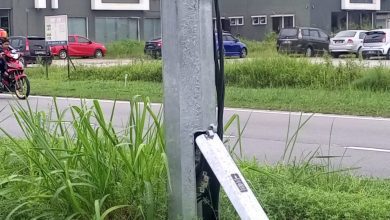Hot weather: Taiping Zoo monitors animal health, avoid exposure to heat stroke
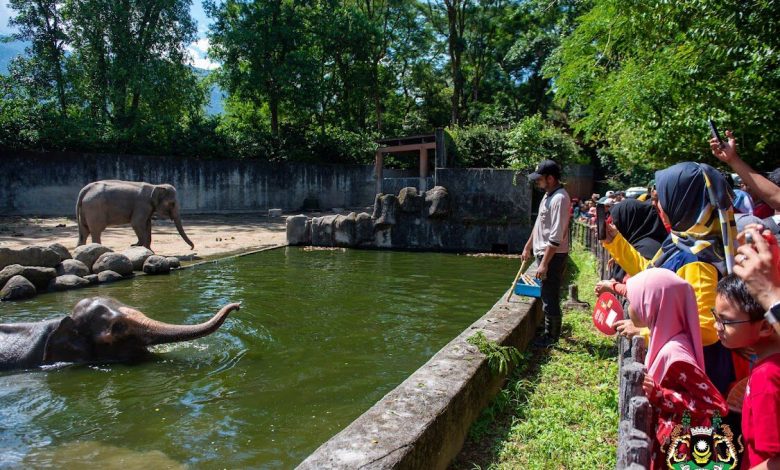

By Aida Aziz
Photo: MPT
TAIPING: The welfare and health aspects of the animals at the Taiping Zoo & Night Safari (ZTNS) here are constantly monitored to prevent them from being exposed to heat stroke, especially when the country is hit by extreme heat.
Director of ZTNS, Dr Muhamad Ridhwan Affendi said that animals can also suffer from heat stroke just like humans, but so far no such case has occurred here.
“We (the country) are hit by extremely hot weather, like in Taiping I saw some days reaching 39 degrees Celsius.
“But thank God the Taiping Zoo is located in a suitable area at the foot of Bukit Larut and surrounded by Tasik Taiping Park.
“In terms of animal welfare, we are always vigilant, every animal exhibit will always have water and I also issued special instructions to ensure that the zoo staff check the water level in the animals’ drinking containers.
“In addition to that, we bathe some animals when the weather is hot, for example elephants, so far no animals have been exposed to heat stroke,” he said.
He said this at a press conference after officiating the ‘Let’s Nurture the Nature’ program in conjunction with the World Environment Day celebration here on Monday.
He said again, in conjunction with the celebration this year, ZTNS and the Taiping Municipal Council (MPT) celebrated with 20 students from Program Pendidikan Khas Integrasi (PPKI) Sekolah Kebangsaan Kampung Boyan, Taiping with the program theme ‘Let’s Nurture the Nature’.
“Among the activities carried out today is the ‘Planting Program of 21 Batang Pokok Kelat Paya Merah’ or its scientific name is syzygium sinubanense, zoo tour and animal feeding sessions,” he said.
In addition, a tree planting session was held using organic fertilizer soil ‘compost from animal dung’ through animal excrement composting.
‘Compost from animal dung’ is a product produced and introduced by ZTNS and MPT for innovation and creative projects.
He further explained that the use of organic fertilizer soil using a mixture of animal excrement helps reduce maintenance costs such as the cost of disposal of animal excrement waste which involves labor and logistics, in addition to reducing the accumulation of excrement at the landfill.
